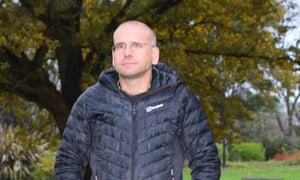Professor Jurriaan Ton, a Dutch expert in plant science at Sheffield University, feels British. His son was born here, his family love Yorkshire, and after more than a decade of producing highly cited research in the UK he has invested “massively” in the resources needed to make his blue skies research a success. But if he finds himself frozen out of grants from the European Research Council (ERC) after Brexit, he will hit a brick wall.
“If I am no longer eligible to apply for ERC funding here then the next big grant I apply for will be with a European university, and I will move when I get it,” he says.
Many of his European colleagues have already left because they didn’t feel welcome after the EU referendum. But for Ton, the crunch issue is the ability to pursue unpredictable science based on exciting new ideas – something he feels is “at breaking point”.
The ERC is seen by UK scientists as one of the last bastions of blue skies research, which is science that explores ground-breaking ideas which don’t yet have any obvious real world application. It is often contrasted with applied science, which takes existing knowledge and derives practical applications from it, such as technology or inventions. According to a recent report, more than 90% of the ERC’s grants are awarded to blue skies work characterised as “high risk, high gain”.

Professor Lee Cronin, regius chair of chemistry at Glasgow University, says the government must protect curiosity driven science. “It generates the breakthrough discoveries of tomorrow, and, much later, feeds the innovation pipeline.”
Cronin’s recent work exemplifies this. He used an ERC advanced grant to develop a liquid battery for an electric car. A normal electric car has a solid battery that takes up to 12 hours to charge at home; Cronin showed you could refill a car with liquid that is charged in minutes.
He is pessimistic about what Brexit might mean for this sort of research, given that the EU has given no guarantees around the future of the UK’s access to science and research programmes. “It is already in critical danger. It might even not be possible to resuscitate [it].”
In last month’s Queen’s speech, the government restated its commitment to ramp up the UK’s spending on R&D – lagging behind many competitor countries on 1.7% of GDP – to 2.4%. Scientists say that such a dramatic uplift is urgently needed, but many are sceptical.
Ton says: “We are in the post-truth era of politics, so the promise of massive cash injections in the run up to an election doesn’t feel reassuring at all.” Cronin, meanwhile, suspects any new funding would be more likely to be diverted to applied industrial projects than blue skies research.
The government has also pledged to create a new science funding agency based on the US’s Advanced Research Projects Agency (ARPA, later renamed DARPA), which was established in 1958 by President Eisenhower in response to the USSR’s shock launch of the world’s first artificial satellite, Sputnik. It had some early major successes by backing blue skies research, including the precursor to GPS technology and the foundations of the internet.
However, many scientists regard the proposed new agency – the brainchild of Boris Johnson’s adviser Dominic Cummins – as a rather puzzling gimmick. James Wilsdon, professor of research policy at Sheffield University, says: “If you talk to science funders in Washington, they are baffled that Britain is fetishising something that came out of the cold war and a very particular context.”
Professor Graeme Reid, chair of science and research policy at University College London, agrees. He believes that the biggest threat to blue skies research has been the shift away from the general quality-related funding [QR] that is distributed to universities based on the results of the research excellence framework, and towards more specific project-based support instead.
He is worried that although research council funding which supports research projects in line with the government’s national policy goals increased by 46% between 2012-13 and 2016-17, QR funding from Research England – which universities use to support research as they see fit – only increased by 1%.
“That means researchers are ever-more dependent on the treadmill of grant applications, with a smaller underpinning resource to allow them to explore new ideas and try things out spontaneously,” he explains.
Reid also says that less background QR money means less support for early career researchers who aren’t yet pulling in grant cash, or people who want to research in adventurous combinations of disciplines that don’t slot neatly into the distinct areas the research councils fund.
But he thinks academics need to get better at explaining why blue skies research matters, too. “We get trapped in a narrative that [suggests] we don’t know what the benefits will be but we will find out in 20 or 30 years’ time,” he says. “In fact, it generates some very rapid results.”
He argues that PhD graduates who have worked in blue skies research fields are in huge demand in the labour market. Plus it’s a magnet for business investment: more than half of R&D investment comes from businesses based overseas.
“Look at Cambridge,” he says. “It’s a little town in the midst of a farming district and it is surrounded by global corporations. Why? They are there to get close to brilliant blue skies research.”
Ton’s experience backs this up. “I’ve noticed that these businesses don’t want us to do applied research for them – they can do that themselves. They want us for the ideas and basic discoveries that have the potential to change things fundamentally.”
In Wilsdon’s opinion, what really frustrates scientists is the fact that the government has shifted far more research cash into so-called “challenge funds” within the research councils, such as the £4.6bn Industrial Strategy Challenge Fund, which are based on its own strategic priorities. Meanwhile, “responsive mode” funding – where researchers themselves generate ideas about what they should be investigating – has been slashed.
Wilsdon is impatient with “nostalgic” blanket distinctions between basic and applied research. But he adds: “What really matters is whether scientists have the time and freedom to pursue their ideas.”

















